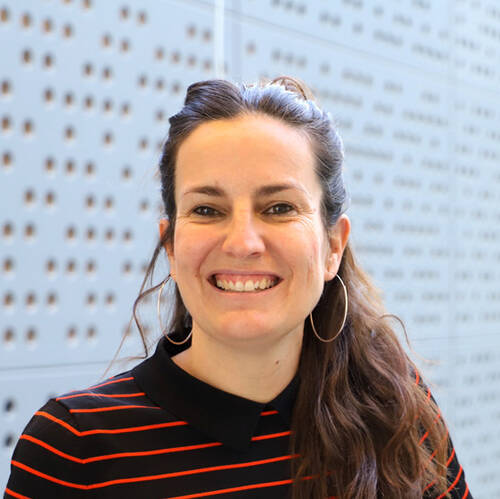Mariona Graupera
Senior group leader
Biography
I began to develop an interest in vascular biology during my PhD where I studied portal hypertension, a vascular syndrome associate with liver cirrhosis. Those studies led me to publish several first-author papers in high impact journals. I defended my PhD thesis in 2003 under the umbrella of the Hepatic Hemodynamic unit at the Hospital Clínic of Barcelona. Very early during my training, I was exposed to what is now called ‘translational research’. This has been very influential for my subsequent research career, in which I have always tried to translate basic science findings into therapeutic opportunities. My interest in signalling pathways in physiological systems led me to join the laboratory of Prof. Bart Vanhaesebroeck in London, first at the Ludwig Institute for Cancer Research and then at the Bart’s Cancer Institute, where I performed my postdoctoral stay from 2003 to 2009. During this period, I unveiled the critical requirement of PI3Ka isoform during angiogenesis. This work, which has a very strong impact in the field, was published in Nature (Graupera et al. Nature 2008).
Driven by my interest in the problem of cardiovascular diseases which are the cause of 45% of deaths in Western countries, in 2009 I embraced the opportunity to create a multidisciplinary laboratory devoted to study PI3K/PTEN signalling in physiopathological angiogenesis at IDIBELL with a Ramon y Cajal position. In this context, I have made instrumental discoveries leading to publish high-impact research (J Exp Med, Nat Commun, Clin Cancer Res, Sci Transl Med, Circulation), and that are likely to influence the clinical management of vascular-related diseases. In particular, our publication (Castillo et al. Sci Transl Med, 2016) has opened new therapeutic opportunities for venous malformations, a paediatric disease which lacks efficient therapy. To further develop this project, we have set up and managed a unique collaboration between clinicians, basic scientists and pathologists which I am sure will be extremely fruitful endeavour.
In February 2021, Mariona Graupera was appointed the Group Ledear of the Endothelial Pathbiology and Mincroenviroment Group to the Josep Carreras Lekeamia Research Institute where she combines her passion for biomedical research and vascular biology with the training of students and postdocs. Our main future goal is to continue pursuing challenging projects and excellence science to understand the role of blood vessels in disease towards the development of therapeutic strategies to target the vascular compartment. This will allow the Graupera laboratory to train a new generation of talented researchers who will help the lab to fulfill the current gaps and conundrums in the vascular biology field. Specifically, the Graupera laboratory has strong interest in understanding i) physiological vessel growth and function, and ii) pathological contexts in which the vasculature plays a critical role either intrinsically (vascular malformations) or extrinsically (cancer). To meet our goals, we use an interdisciplinary approach that includes state-of-the-art mouse and zebrafish genetic models, cell culture of patient-derived endothelial cells, systems biology approaches, and high-resolution microscopy including live imaging.
As PI, I have: (1) published 40 publications (13 peer-reviewed publications as a last author); (2) trained 14 PhD students (9 defended), and 9 postdoctoral fellows; (3) been awarded with 21 competitive grants, amongst which there are 4 European ITN actions, 2 as coordinator, 1 La Caixa-HR, 4 research and 2 philanthropy agreements; (4) done a summer stage at the Rockefeller University in 2018; (5) been invited to give seminars at the most prestigious research institutes and meetings in Europe and US.